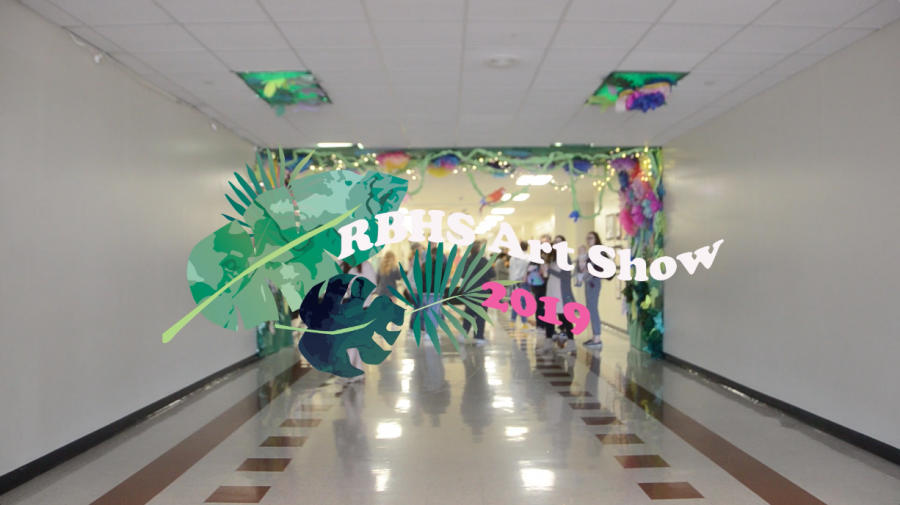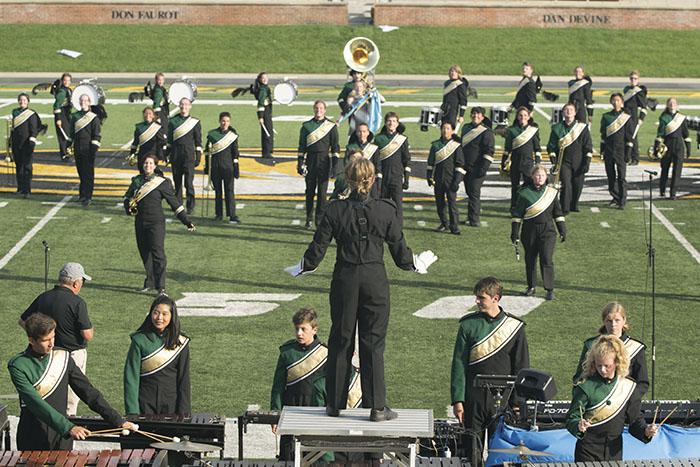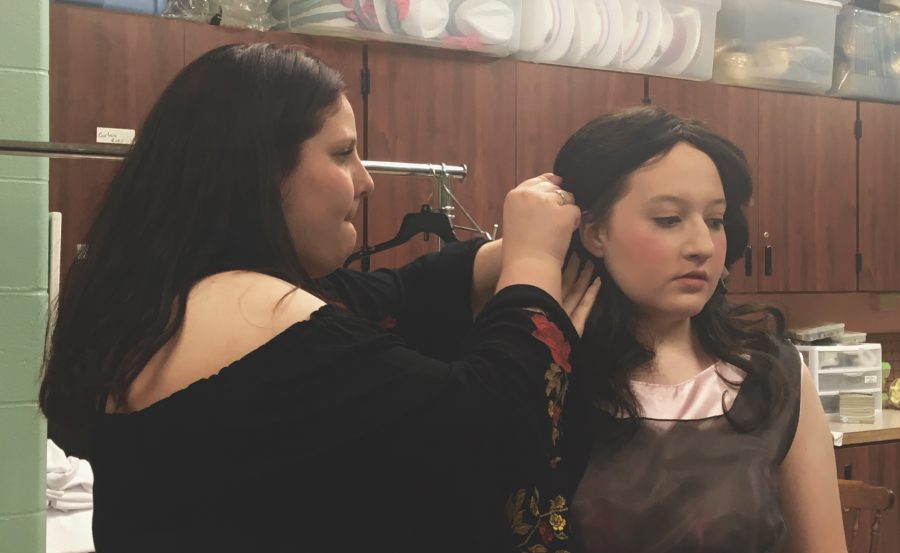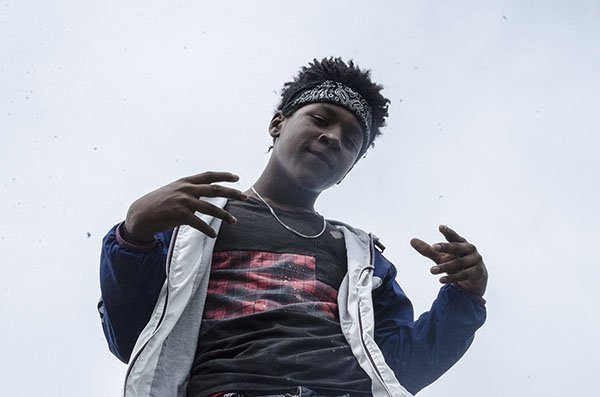
For band students, an A day does not start out with textbooks. The day doesn’t start with a lecture, or equations or experiments. Three minutes after the bell rings to mark the beginning of first hour, Symphonic Band director Bob Thalhuber takes his podium at the front of Room 404, and the day begins with a B-flat concert scale.
“There’s a bit of every single emotion involved; we like to have fun,” Thalhuber said. “Teenagers are a breed of their own, so you have to get sort of dark every once in a while to get people to feel like they need to listen.”
With the end of the competitive marching season in October, the band program faced an abrupt transition into an entirely different realm of music: concert band. Divided into two groups—Symphonic Band and Wind Ensemble—only 14 rehearsals separated the last marching competition from their concert tomorrow night at 7 p.m. in the PAC.
“I could always use more time,” Wind Ensemble director Steve Mathews said. “It is hard since [marching band] just ended, but it just pushes [the students] to hurry up and put the music together.”
Though there is no time to spare, senior Wind Ensemble member Dominic Lardizabal feels calm in the face of the pressure. The overall composition of the band is reassuring and lowers the stress.
“Considering how many seniors there are this year, [the] majority of us know how it feels to be pressured in time for a concert,” Lardizabal said. “This year hasn’t been too bad regarding the time allotted. We try to get our parts learned as quick[ly] and accurate[ly] as we can so we don’t waste rehearsal time.”
Although Mathews wishes there had been more time for the ensembles to prepare, he believes the change between seasons shows the flexibility of the band and diversity of the program.
“With marching, we are working on the same eight minutes of music for close to three months because it’s so visually involved,” Mathews said. “But with concert, we’re able to just do a lot more variety of music because we don’t have the whole visual element. It’s two different things.”
For the sake of variety, both band directors incorporate several styles of music into their programs, including slower pieces, marches, “staple pieces” that have been around for decades and more contemporary music. However, while the diversity in music offers relief from the field show, Thalhuber said the difference in environment provides a more individual-based approach.
“Kids are actually working physically harder outside [on the football field], so that kind of limits musically what you can focus on,” Thalhuber said. “I think you can focus more specifically on the music inside, whether it’s phrasing, breathing, technical issues, or intonation. And when everyone’s stationary you can address specific individual problems a little bit more clearly. It’s a little bit more effective sitting down in the room.”
While the bands worked to perfect their musicality and confront issues to prepare for Tuesday’s concert, Thalhuber is confident the band program reaches much beyond the scope of music and gives students a taste of reality after high school.
“I think it teaches camaraderie,” Thalhuber said. “It teaches students to depend on each other in a very important way because the way our economy’s going, that’s what we’re going to be needing to do—innovate and work together in groups to be creative and solve solutions. That’s what band is.”
Mathews said the way in which performing arts classes help people to grow is because of the unique way each student is required to participate. Being a part of the band, for example, requires use of the brain, psychomotor skills and aesthetics at the same time.
“Even Plato said the most important things are math, sciences and music,” Mathews said. “I think [band] really just helps develop the whole person. If you think about it, you don’t have a whole lot of feelings to do math, but when you engage your brain, your body, and your heart all at the same time it really stretches you to have to do all three things at once. And no other subject does that.”
Thalhuber carries the same opinion, believing that while every class has its own important aspect, music gives us life. Music gives us depth. Music gives us soul. Music makes us human.
“If we don’t have music, we’re not our species,” Thalhuber said. “We’re not who we are. And I think coming to school and being able to sit down first hour—whatever hour—and playing music sort of clears the brain, makes you feel normal, makes you feel alive.”
As the bands get ready for one last practice tomorrow morning, the students will play through the routine warm ups, trudge through the tricky spots and work as hard as they can while facing the anticipation of their performance. But when it comes to show time at 7 p.m. Thalhuber says the music itself will provide a sense of calm after the storm of rehearsals.
“It’s just sanity,” Thalhuber concluded. “It’s just keeping your sanity.”



















































































